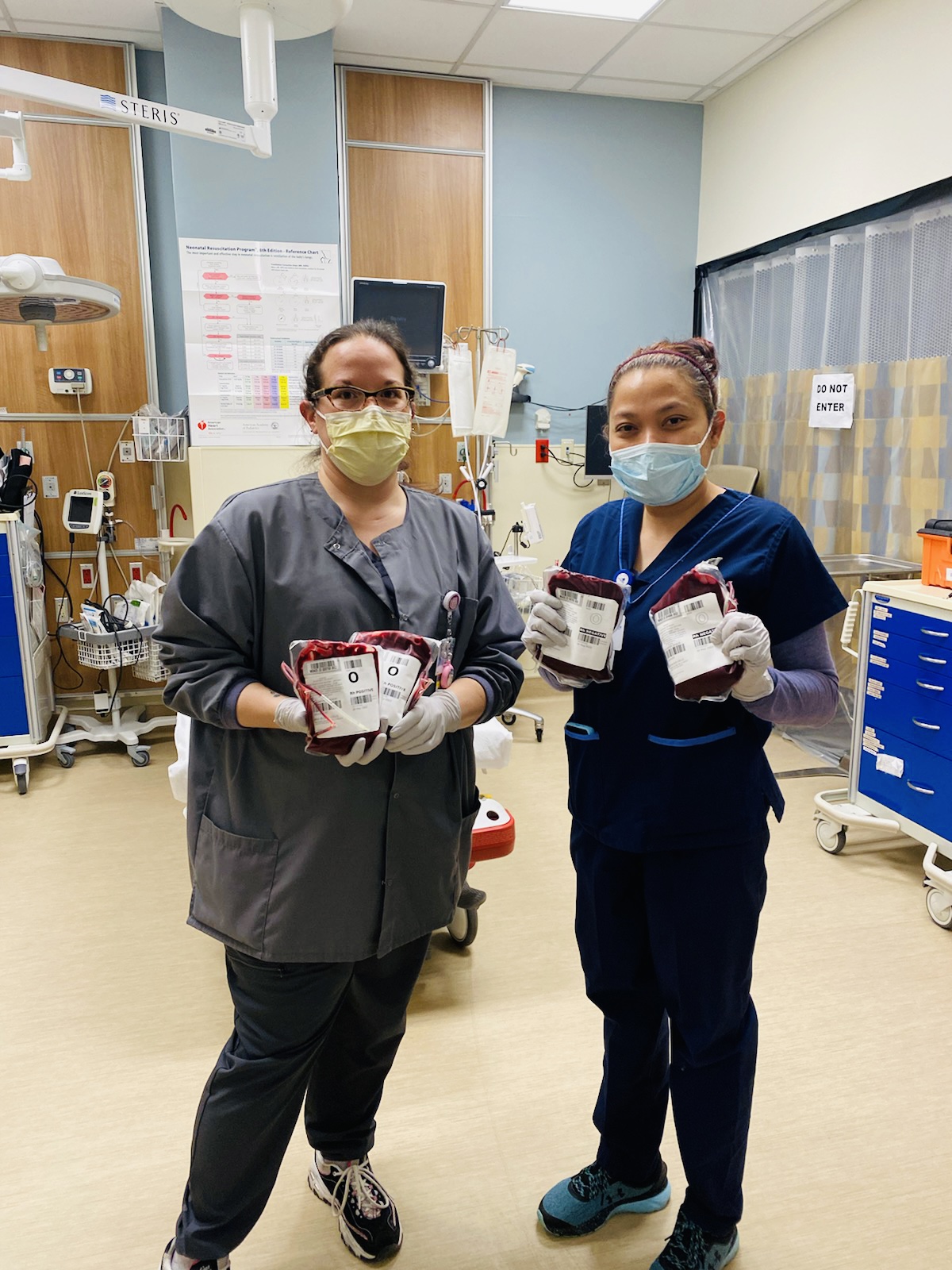DIRECT ACCESS
LAB TESTING
Direct Access Laboratory Testing (DALT) is part of a wellness program that is offered by McKenzie Health. This service provides the option to order selected lab tests on your own, from a limited DALT menu, without a physician’s order.
McKenzie Health Lab
Available Tests
Lab Test |
COST |
| Full Health Panel fasting recommended (CMP, CBC, Lipid Panel, TSH) | $100.00 |
| Comprehensive Metabolic Panel (CMP) * | $45.00 |
| CBC with auto-differential * | $35.00 |
| LIPID Panel * (Cholesterol, Triglyceride, HDL, LDL) fasting recommended | $35.00 |
| Urinalysis | $25.00 |
| Thyroid Stimulating Hormone (TSH) * | $30.00 |
| Prostate Specific Antigen (PSA) Men only | $50.00 |
| Testosterone Total | $50.00 |
| Hemoglobin A1c (HgA1c) | $35.00 |
| Vitamin B12 | $30.00 |
| Vitamin D | $65.00 |
| Urine Pregnancy Screen Women only | $25.00 |
| Blood Typing | $30.00 |
* Included in Full Health Panel
Your payment for DALT services is required up front, by cash, check or credit card, along with an address and phone number.
Direct Access Laboratory Testing will not be billed to your insurance, and is usually not reimbursable to you by your insurance.
Direct Access Laboratory Testing—an affordable way to monitor your health


No Referral Necessary
Walk-in at Main Entrance and register
Lab Hours: 8:00am to 5:00pm
HELPFUL INFORMATION
Will I need special preparations or instructions for any of the tests?
For most of the tests, you will not need special preparations. However for some tests, fasting is recommended. A 12-hour fast is recommended for the Blood Chemistry, Lipid Panel, Women’s Health Panel, Men’s Health Panel, to obtain the most accurate results. If you have questions about what fasting involves, call the Laboratory at (701) 444-8610.
How will I receive my results?
If you participate in DALT, your test results can be accessed through MyChart. Any abnormal results will be flagged by L – for Low and H – for High. It is recommended that you consult your physician or medical provider to discuss these results. Any medical follow-up appointments needed in response to the DALT results will need to be scheduled by you with your medical provider. If you do not currently have a medical provider, you are welcome to visit mckenziehealth.com and click on the Health Services menu for a list of local medical providers and their contact phone numbers.
What if testing yields critical results that are potentially dangerous or require immediate attention?
It is mandatory that you provide a contact telephone number when completing your test requisition/order. If a result is obtained by the Laboratory that would require immediate medical attention (a critical result or alert result), you will be called at the telephone number you have provided and asked to immediately contact a physician, such as your personal physician or an emergency room physician. It is your responsibility to follow up accordingly.
What if I become ill or have problems after the lab blood draw, such as experiencing pain, bruising or prolonged bleeding at the venipuncture site?
If you experience any ill effects after the lab blood draw (pain, bruising or prolonged bleeding), you should immediately contact your physician or an emergency room physician.

Can I arrange to have the McKenzie Health Laboratory share my test results with my personal physician?
Yes. Your physician can access your lab testing results through your EHR (electronic health record) should you choose.
What if I experience ill effects from a treatment I receive from my physician, based on the information provided by this program?
McKenzie Health agents, Laboratory staff/employees, Laboratory directors, and any volunteer personnel involved in this program are not liable for ill effects or poor outcomes of treatment, or lack of treatments, you receive, or don’t receive, from your physician based on the results of this program.
What will be required if I pick up my lab results in person?
McKenzie Health encourages you to receive your results by MyChart. If, for some reason, you must pick up your lab results in person, you will need to go to McKenzie Health Records at 709 4th Ave NE, Watford City, ND, and bring a photo ID.
USING TESTING FOR MONITORING HEALTH
How can I arrange clinical follow-up with a physician?
If you do not have a personal physician, the McKenzie Health Laboratory can provide you with a list of local physicians/medical providers and their clinic phone numbers, so you can choose a physician/medical provider and make an appointment with him/her to discuss the significance of your test results.
Can Direct Access Laboratory Testing be used as a substitute for examination by a medical doctor?
No. Laboratory testing should not be used as the only means to diagnose the presence or absence of disease (or any medical condition). You will need to share your test results with your physician, and the test results should be used as part of a complete medical examination.
Can McKenzie Health Laboratory bill insurance for a Direct Access Laboratory Test?
No. McKenzie Health Laboratory will not bill insurance or any third-party payers for DALT tests. McKenzie Health accepts cash, checks and credit cards, up front, at the time of service.
Will my insurance company reimburse me for the cost of tests?
No.
Why don’t insurance companies routinely cover these tests?
Because DALT tests are not ordered by a physician, insurance companies routinely do not cover these tests. Please check with your insurance company.
What can I expect if a McKenzie Health Laboratory employee sustains an unexpected exposure to my blood?
The McKenzie Health Laboratory has a policy of testing patients’ blood for Hepatitis B and HIV (AIDS). If an employee sustains an unexpected exposure to your blood during collection or testing, the results of the above testing will also be provided to you.
Where can I get more information on the Direct Access Laboratory Tests?
If you are interested in more information, a flyer with DALT info will be provided upon your visit or if you need more general information, please visit the following websites: webmd.com or labtestsonline.org.
The laboratory results of Direct Access Laboratory Testing (DALT) require additional expert interpretation and do not substitute for medical advice, diagnosis, or treatment, which should be based on your physician’s professional judgment, including his/her review of your test results, the findings of physical examination, and the review of your personal and family medical history. DALT laboratory results are sent to MyChart. You are responsible for distribution of your reports to your physician and for scheduling a follow-up appointment to discuss your results with your physician.
Urgent/Emergent Results: The client purchasing DALT services understands that DALT services are not appropriate for urgent or emergent needs.
McKenzie Health Laboratory
Available Health Screenings
Comprehensive Metabolic Panel (CMP)
This tests for liver function, kidney function, electrolytes, acid/ base balance, blood proteins, blood glucose (also known as blood sugar, which tests for diabetes).
Complete Blood Count (CBC)
This screening measures the total number of white blood cells, red blood cells (with hematocrit and hemoglobin levels), and platelets. The white blood cell number is used as an indicator of possible infection, immune status and some leukemias; the red blood cell number (and hemoglobin/hematocrit) is a possible indicator of anemia or polycythemia; the platelet number may indicate bleeding disorders.
Lipid Panel (Cardiac Risk Assessment)
The Lipid Panel screens for blood findings associated with cardio- vascular risk. It tests for total cholesterol, triglycerides, HDL cholesterol, LDL cholesterol, and VLDL cholesterol. Studies have shown important cardiac risk factors include age, smoking status, hypertension (high blood pressure), diabetes, blood total cholesterol levels, and blood HDL cholesterol levels. Fasting for 10-12 hours prior to the blood draw is recommended but not required. However, people with diabetes should not fast, unless otherwise directed by your physician. Check with your medical provider for specific recommendations. You are encouraged to drink plenty of water and continue to take prescription medications.
Urinalysis (UA)
A urine sample is required. Urinalysis provides an overview of the function of the kidneys. The kidneys play a key role in the excretion of by-products of cellular metabolism and regulation water, acid-base and electrolyte balance. A urinalysis screens for protein or red blood cells in the urine (kidney disease/kidney function); and bacteria and white blood cells in the urine (urinary tract infection/bladder infection).
Thyroid Stimulating Hormone (TSH)
This test is used to screen for thyroid function, and to detect mild and overt hypothyroidism (underactive thyroid) or hyperthyroidism (overactive thyroid). It is also used to monitor therapy with thyroid hormone/Synthroid/Levothyroxine medication. It is often used together with Free Thyroxine (Free T4) levels to detect thyroid dysfunction.
Prostate Specific Antigen (PSA)
PSA is a blood-screening test for any person born with a prostate that measures a protein that is only produced by the prostate gland. Elevations of PSA may occur in people with non- cancerous prostate diseases or prostate cancer. A normal PSA level does not exclude the possibility of prostate cancer. A physical/manual prostate exam, performed by a health care provider, is also necessary to evaluate for prostate disease and should be used along with a PSA test.
Testosterone
This test is used to detect low testosterone or high testosterone levels in the blood. Testosterone is the main sex hormone in men and is responsible for male physical characteristics. It is present in the blood of both men and women and is used to help diagnose low sex drive, erectile dysfunction, infertility or delayed or early puberty, for example.
Hemoglobin A1c (HgA1c, HbA1c)
This test screens for diabetes by measuring your average blood sugar control for the past 2 to 3 months. For people with known diabetes, it indicates how well your diabetes plan is going.
B12 Panel
Vitamin B12 is an essential vitamin which is needed for the formation of healthy red blood cells and proper nerve function. A deficiency in B12 can cause a condition known as Macrocytic Anemia in which red blood cells are larger than normal. Common causes for Vitamin B12 deficiency are malnutrition, liver disease, alcoholism, and malabsorption disorders such as Celiac Disease, Cystic Fibrosis, and Inflammatory Bowel Disease. A Vitamin B12 test is typically ordered when a person is experiencing symptoms such as diarrhea, dizziness, fatigue, pale skin, loss of appetite, rapid heartbeat, shortness of breath, tingling or numbness in the extremities, and a sore mouth or tongue. B12 is often ordered as a follow-up to a Complete Blood Count (CBC), which shows abnormal results for red blood cells and Mean Corpuscular Volume (MCV).
Vitamin D (25-Hydroxy Vitamin D)
This screening can provide an initial baseline level of Vitamin D before starting Vitamin D therapy, or it can be used to monitor Vitamin D levels if you take a Vitamin D supplement. Vitamin D deficiency is now recognized as a worldwide problem. Your body requires Vitamin D to absorb calcium, and Vitamin D plays an important role in protecting your bone health (preventing and treating osteoporosis).
Urine Pregnancy Screen (Qualitative HCG urine test)
A basic pregnancy test that measures if human chorionic gonadotropin (HCG) is in your urine. HCG is a hormone produced in the body during pregnancy. Results are reported as positive or negative. This test is useful in detecting pregnancy at 10 days or so after the date a woman is due to start her menstrual period. However, a “false negative test” can occur early in pregnancy.
Blood typing
Commonly referred to as ABOrh, this test determines your personal blood type.


